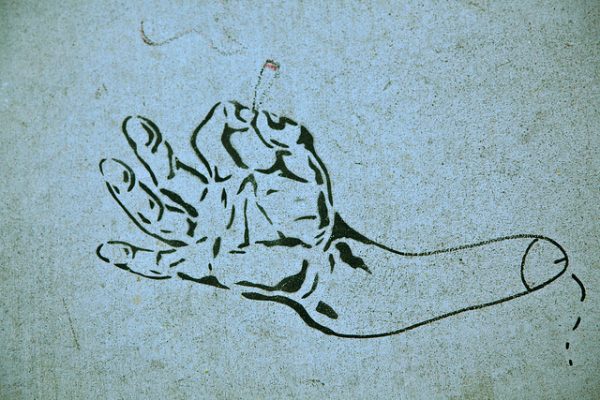
Often when we think of humor and drugs, images from popular media such as Cheech and Chong or Pineapple Express come to mind. These images often frame dealers as clueless stoners who can’t seem to stay out of trouble with the law or other dealers. But how do jokes play a role in the reality of drug dealing? Recent research by Timothy Dickinson and Richard Wright shows that humor, particularly denigrating humor, is central to the identity of drug dealers.
Given inherent legal and privacy concerns, illicit drug markets are difficult spaces for researchers to access. The lead author Dickinson was able to circumvent this complication by drawing on his personal connections to recruit participants. The study includes both interviews and observations of 33 current and former drug dealers in the St. Louis area. Many dealers indicated that they were “retail-level” dealers that sold small quantities, while a few others were suppliers that sold larger amounts for redistribution by other dealers. The dealers sold a variety of substances including cocaine, meth, marijuana, and MDMA. Most operated in “closed markets,” so they typically only sold to friends or acquaintances, and the large majority also reported having some form of legal employment and using their own drug supply.
Findings suggest that humor helps these individuals assert their identity as dealers, while also allowing them to reduce their perceptions of the threats posed by police and police informants. Specifically, dealers distinguished their current identity as “smart” from other “stupid” dealers, while also distinguishing their current “smart” dealer identity from their previous decisions that they viewed as “being stupid.” In one example, Brian, a white ecstasy and marijuana dealer, mocked himself for driving while intoxicated with drugs:
“I just got off work and I had eight individual eighths [bags of marijuana weighing 3.5 grams] … all individually wrapped cuz I was getting ready to sell. … And I was an idiot. … I was smoking weed [laughs]. … I went through a sobriety check. … As soon as the [police officer] walks up to the truck, he’s like, “You having a good night?” and I’m like, “Well, not now” [laughs].”
Dealers reduced perceived threats of arrest by dismissing police as as too crooked or incompetent to punish them. Some claimed to have an eye for undercover police officers, and parodied police efforts to identify them as dealers. They also denigrated possible police informants as non-threatening and indicated that their present dealing was too small time to be of much interest to police. Taken together, these findings suggest that the role of humor in drug dealing goes far beyond what we see in many stoner comedies. The threat of punishment is perceptual, and wit is one way that dealers can mitigate the riskiness of dealing while cementing their identity as the smart players in the drug game.

Comments